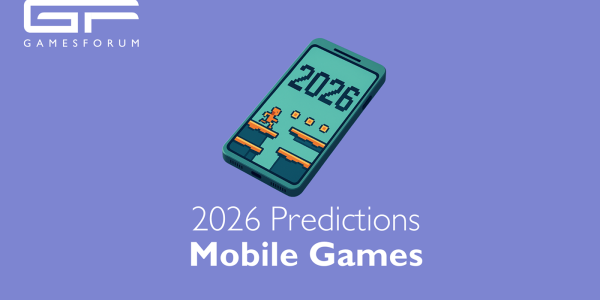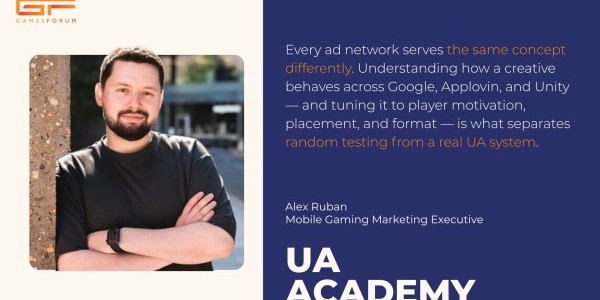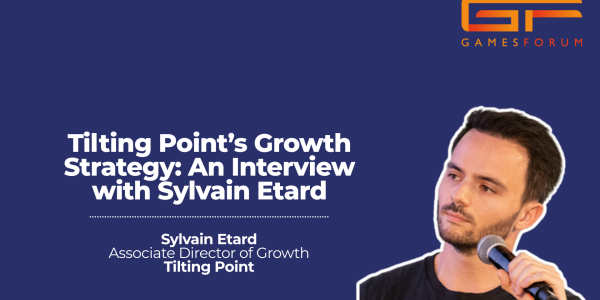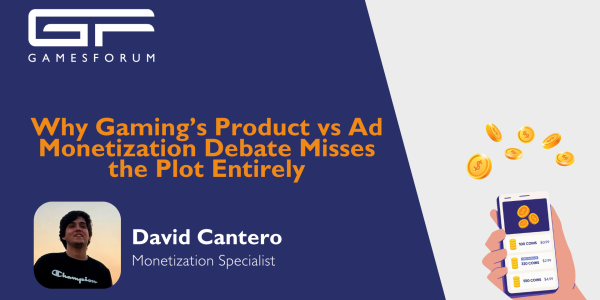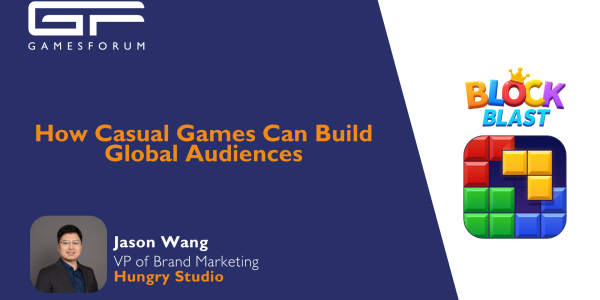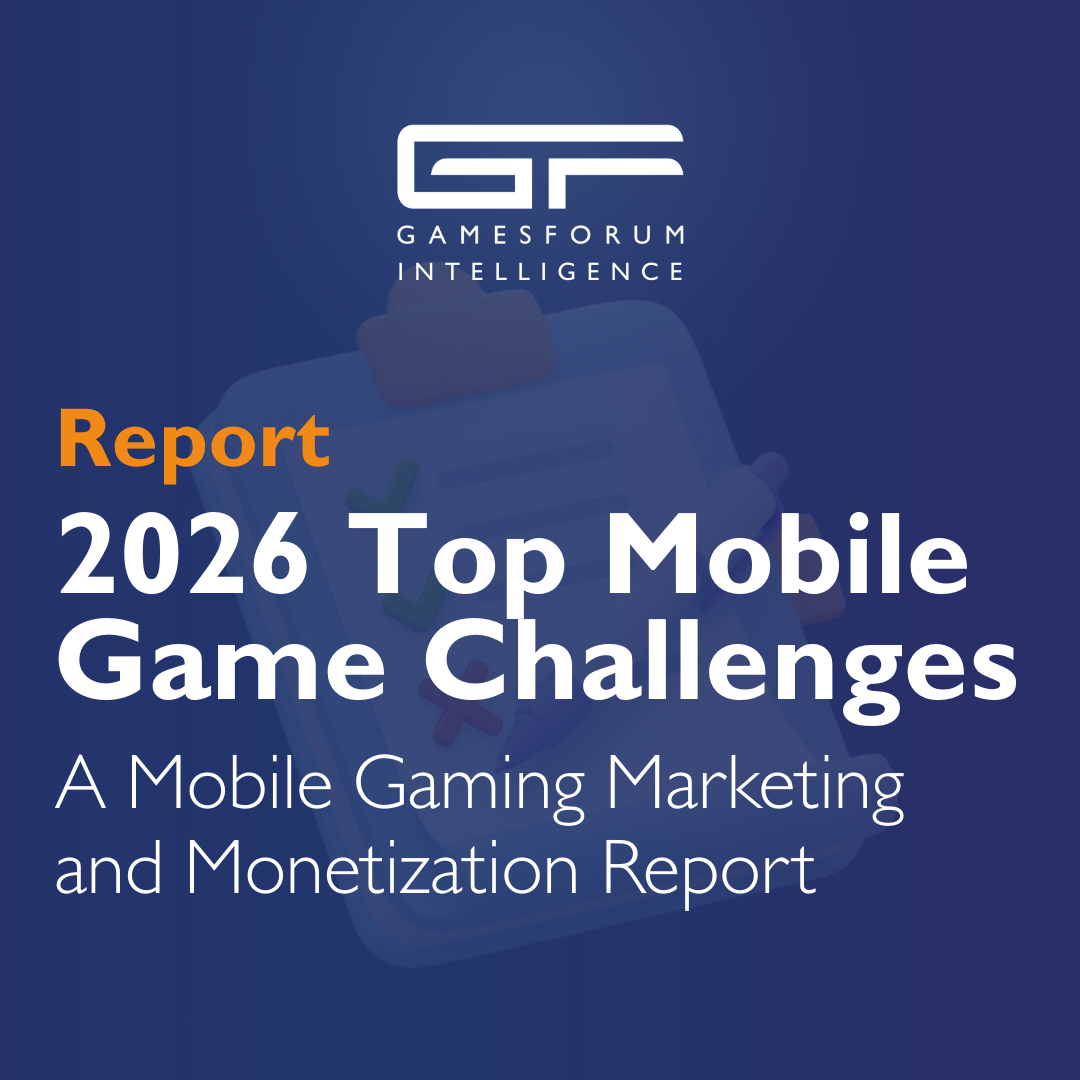Gamesforum Meets: Vincent Tessier, Head of Gaming, SourcePoint

Josh: Hi Vincent! Thanks for joining us- can you share a bit about yourself?
Vincent: Hey, thanks for having me. I’m Vincent based in London, partner and father of two amazon daughters. I am an advertising and music enthusiast, who happened to work in the gaming industry which I love. I am leading the gaming vertical for SourcePoint, a privacy software company that offers a CMP to publishers to make sure they are compliant with the different laws & that they optimize their consent rate for the sake of their monetization health.
Josh: Tell us about your journey in the gaming and space so far.
Vincent: Most recently, I was managing the EMEA region for Unity Ads on the monetization side of things, which has been a fantastic experience & opportunity for me. Seeing how a leading ad network thinks & operates is invaluable and fascinating. The competition for the audience & inventory is very hard,gaming publishers are very savvy on one hand, on the other the mediation are really acting as gatekeeper of the publisher’s inventory. My experience is very much focused on the ad models, the UA & the Monetization side of things. This means that I’m paying close attention to the ways ads are integrated in a game, and that changes depending on the genre. I’m also very interested and looking at the user experience, our industry has been very far in terms of ad frequency as well as pushiness. Before Unity, I held various commercial roles at MoPub, adsquare & AOL.
Josh: What is your favourite mobile game?
Vincent: Domino from Loop Games (The French publisher).
Josh: We are a month in to Google’s new CMP, how have publishers faired so far? What red flags have been arising?
Vincent: It’s been a month indeed that Gaming publishers had to comply with the Google platform policy to implement a TCF 2.2 & Google certified CMP in their games. Failing so, Google would not monetize the app anymore so the incentive was pretty strong. The reality is that a lot of gaming publishers have yet to do so. What we see is that the market is split into a four buckets.
- You have the large Casual or Mid-core publishers, IAP heavy, who usally have built a proprietary solution and are still evaluating their options and if it’s worth switching to a third party paid CMP option.
- Majority of IAA publishers, heavily dependent on ads, went with the free CMP solution that Google provides, there are 2 issues with that, 1. Your optin rate will not be fully optimized because of the lack of some key features 2. The Google CMP doesn’t make you GDPR compliant by default, it requires some adjustments and specific settings to put in place.
- You have small publishers for which Google demand was not representing a lot of their revenue pie for various reasons (genre, format or geos), and they simply cut Google demand, either momentarily or indefinitely.
- Finally, a minority who have privacy strategy and have implemented a proper solution to collect and process consent, these ones doscreen
- sleep well at night.
Bottom line the gaming market is not fully compliant to both TCF 2.2 and of course as a consequence to GDPR. As a reminder, the related fine is 2% of your global revenue or 10M€, whichever is the biggest number is. Latest exemple is Amazon fined €746M last July by the Luxembourg local DPA (NCDP, National Commission for Data Protection) for violating GDPR.
Josh: The industry is changing, with new rules and regulations. What are your top three challenges facing mobile game growth and monetization in 2024?
Vincent: Well, really it’s just the beginning of the journey. If you think Privacy is already complex, watch this space, it will continue to be even more intricate & require a refined and strategic approach. We will see more regulatory updates going in the same direction and requiring more transparency, such as the (DMA) and the Digital Services Act (DSA). Countries and local governments or states in the US will all adopt & enforce their own flavor and interpretation of user privacy, with different levels of severity. We will have more countries enforcing the ‘Reject All’ button on the first page (today it's only France, Spain, Germany & United Kingdom). The other big topic is the platforms and private companies regulations, today it’s Google, tomorrow it will be Unity, META requiring TCF 2.2 or another framework to monetize your audience. Lasty, privacy Sandbox is coming and fingerprinting enforcement too. 2024 and 2025 will certainly be interesting years when it comes to Privacy.
Josh: What advice would you give to new studios looking to maximise revenue using IAA?
Vincent: Bottom line is that Games publishers now need to be more transparent about their use of data and not hide it behind opaque T&Cs or think that now that the Google topic is behind, they are done with the privacy topic. Embrace the privacy journey.
- Privacy can be a competitive advantage so approach it with that kind of attitude instead of having it be a burden. Optimising your consent rate should be part of the Monetization team routine, very much like optimising your placements or SDK networks.
- Also, localizing your privacy messages, just like you do with your games, testing different message designs and timing for the best outcomes, and this per country.
- Learn from those who have been through it - GDPR is not a new thing, but mobile gaming is experiencing a wake up call and can look to see what has been successful for other publishers with more experience.
- DPO, traditional publishers and programmatic people are used to this terms, this stands for Demand Path Optimization. It’s about tracing the banner you see back to the advertiser who is doing UA, and understanding the path of this impression, which vendors, partners, tech it went through to arrive aont your game, and optimizing this path for your own benefits, this can reduce your legal liabilities and increase your revenue.
Josh: Finally, as a speaker at Gamesforum Barcelona, what did our audience hear from you?
Vincent: The panel was fantastic. Covering complications and innovation to monetize a game nowadays. We discussed:
- From a SourcePoint point of view, I think our goal is really to evangelize the idea of Privacy as a tool more than a legal obligation, a tool that you can optimize and take advantage of.
- Also, complying to all requirements that are coming from several directions such as local DPAs, Platform such as Google and industry frameworks requires more than a technical solution, it requires working with a team of professionals.
- It’s not just something you can throw onto your app and forget about, it’s about having a long term privacy strategy.
- Another very important idea we wanted to share to the audience, is that complying with TCF doesn’t mean you are compliant with GDPR. The Google change has created awareness on a topic that Gaming publisher cannot ignore anymore. This is very much the start of everyone’s privacy journey and it’s not just about putting a consent popup and think you are done.
Lastly, I want to mention the excellent article & analysis that Bozo from GameBiz Consulting shared recently that is really telling a lot about the state of the CMP landscape in gaming, the pitfalls & most importantly some consent rate benchmarks.
You will be able to catch Vincent's panel at Gamesforum Barcelona online soon!




